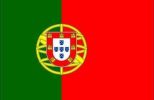Music

There are only a few pieces of music entirely attributable to Macau, notably Macau Lullaby, an old, traditional nursery rhyme, and its score here by Harry Ore and John Braga.
Existem apenas algumas peças musicais inteiramente atribuíveis a Macau, nomeadamente Macao Lullaby, uma antiga canção de embalar tradicional e sua partitura aqui por Harry Ore e John Braga.
Macau Lullaby:
An old Macanese nursery rhyme, some versions with bawdy lyrics
Um velho rima Macaense , algumas versões com letras picantes
Programme of Concert by Ligia Pinto Ribeiro and Prof Harry Ore at Clube de Recreio, 6 May 1950
Programa do Concerto de Ligia Pinto Ribeiro e Prof Harry Ore no Clube de Recreio, 6 de Maio de 1950
Maria da Fonte
Os membros portugueses do Corpo Voluntário de Defesa de Hong Kong adoptaram, nos campos de prisioneiros-de-guerra, uma marcha, “Maria da Fonte” Saiba mais sobre este evento
The Portuguese members of the Hong Kong Volunteer Defence Corps adopted
in Prisoner-of-War camp a rousing marching song, Maria da Fonte More about this event.
My thanks to Bosco Correa for initiating interest in this, to Gerry McDougall and Tony Jorge da Silva for research into the background, to Meno Baptista for relaying the story from Luigi Gosano, and to Peter Guterres for suggestions on translation. – HdA
Meus muitos agradecimentos a Bosco Correa por despertar o interesse nisso, a Gerry McDougall e Tony Jorge da Silva pela pesquisa sobre o contexto, a Meno Baptista por relatar a história de Luigi Gosano e a Pedro Guterres pelas sugestões sobre a tradução. – HdA
Unga casa macaista
A popular traditional Portuguese song with Macanese words
Uma canção folclórica tradicional com letra em Patuá
| Patuá | EnglishInglês |
| Unga casa macaísta vôs olá | A Macanese house, you will find |
| Têm carinho na pobreza | Has love even in poverty |
| Si têm gente batê pórta pôde entrá | Anyone knocking on the door can enter |
| Vêm comê cô nos na mêsa | And eat with us at the table. |
| Genti pobre, genti rico sâ gostá | Both the poor and the rich like |
| Cativá tudo visita | to be charmed on every visit. |
| Masqui seza unga casita | Although the house might be small |
| Têm su chiste cô alegria | it is enlivened by joy |
| Tudo óra, tudo dia. | all the time, every day. |
| Mêsa cô toália bordado | The table set with embroidered cloth |
| Vaso di fûla na châm | A flower pot on the floor |
| Pisunto china bafado | There is boiled Chinese ham |
| Têm galinha, têm capám. | There is chicken, there is capon. |
| Porco balichám tamarinho | Pork with tamarind and balichão |
| Vaca chaucháu maragoso: | Beef stir-fried with bitter melon |
| Unga caneca cô vinho | A jug of wine |
| Quanto bebinga sábroso | So many tasty puddings |
| Unga casa macaísta fazê vista | A Macanese house is something to behold |
| Sâ fazê vista unga casa macaísta | Quite a sight is a Macanese house. |
| Siara-siara sabe abrí su coraçam | The ladies know how to open their hearts |
| Lôgo ri pa tudo genti | They will laugh at all the people |
| Na janela sâ cherá mangericám | From the window wafts the scent of basil |
| Fazê vôs ficá contente. | To put you at ease. |
| Tem biscoito cô ôbrêa na fontám | There are wafer biscuits in the pantry |
| Camalénga feto dóci | Candied winter melon |
| Chá-co-sucri dóci-dóci | Tea sweetened with sugar |
| Tudo óra têm na mesa | Is always at the table |
| Quim querê fazê fineza. | Whoever wants to can be polite. |


